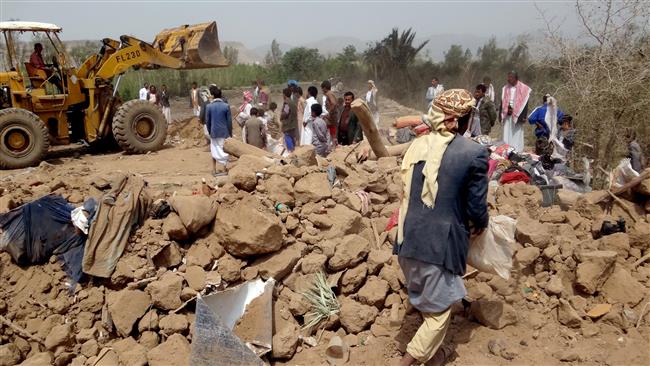
RNA - “All parties to the conflict continue to show a disregard for the protection of civilians and the principle of distinction between civilians and combatants in the conduct of hostilities,” the UN's Humanitarian Coordinator in Yemen Jamie McGoldrick said on Sunday.
McGoldrick’s remarks came two day after three women and six children from the same family were killed in a Saudi airstrike on their home in Yemen's northwestern province of Sa'ada.
The head of the local health department, Dr. Abdel-Ilah al-Azzi, said the attack on Friday dawn targeted the family home of Taha al-Dharafi in Mahda district on the southwestern outskirts of Sa’ada city, located 240 kilometers north of the capital Sana'a, also left three other people injured.
Three people were also killed in a Saudi airstrike on a private vehicle in the same Yemeni province.
Ahmed Ben Lassoued, a spokesman for the United Nations Office for the Coordination of Humanitarian Affairs (OCHA) in Yemen, has described the Saudi aerial and naval blockade on Yemen as one of the main causes of the humanitarian catastrophe in Yemen, stressing that the measure has disrupted the import and export of food, fuel and medical supplies as well as humanitarian aid.
Last month, the UN announced that more than 17 million people in Yemen are currently food-insecure, of whom 6.8 million are severely food-insecure and in need of immediate aid.
It underscored that Yemen conflict that has left 18.8 million people in need of assistance, including 10.3 million who require immediate assistance to save or sustain their lives.
Saudi Arabia has been incessantly pounding Yemen since March 2015 in an attempt to reinstate Hadi, a staunch ally of Riyadh, and to undermine the Houthi Ansarullah movement. The Riyadh regime has, however, failed to reach its goals despite suffering great expense.
The military aggression has claimed the lives of more than 12,000 people, mostly civilians.
847/940